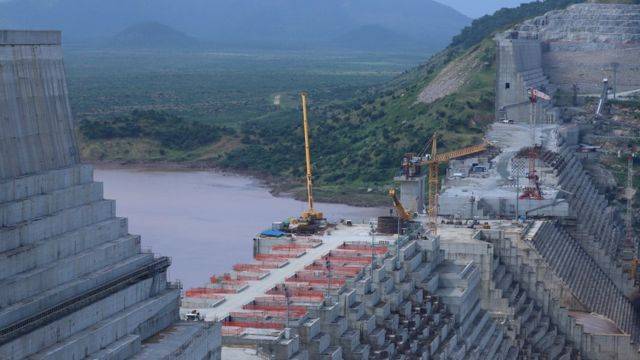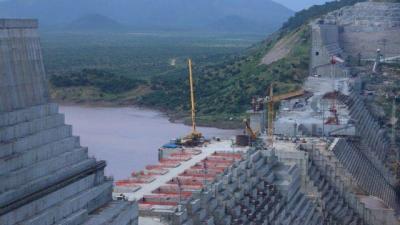The Ethiopian Ministry of Foreign Affairs announced that it is committed to negotiations sponsored by the African Union and will not accept Sudan's attempts to link the border issue with the negotiations over the Grand Ethiopian Renaissance Dam (GERD). Ethiopian Foreign Ministry spokesperson Dina Mufti stated on Tuesday during a press conference held at the ministry's headquarters in Addis Ababa that Sudan's statements regarding the affiliation of the Benishangul region are unfortunate and unacceptable.
Mufti said, "Sudan's hostile statements continue, and not only has Sudan violated Ethiopian territory, but it has also claimed the affiliation of the GERD region." He pointed out, "Sudan's claims regarding the affiliation of the Benishangul-Gumuz region are regrettable, and we completely reject them, and we will issue a detailed statement regarding this."
Mufti emphasized, "We are still, and will remain, committed to the leadership of the African Union and will not accept Sudan's maneuvers to link the issue of borders to the GERD."
On its part, the Sudanese Ministry of Foreign Affairs affirmed Khartoum's commitment to international agreements and treaties, denouncing repeated Ethiopian claims regarding the illegitimacy of agreements signed concerning the Nile in the past century. It noted that Addis Ababa's repudiation of those agreements infringes on its sovereignty over the Benishangul region to the north, where the GERD project is established, expressing regret over the statements made by Ethiopian officials that Sudan is trying to impose on Ethiopia what they call “colonial agreements” concerning Nile waters and border agreements between the two countries.
Tensions have escalated between Ethiopia on one side and Egypt and Sudan on the other, following Addis Ababa's announcement of the date for the dam's second filling, an action that Khartoum considers "a looming threat to the safety of its citizens," while Egypt fears its negative impact on its share of Nile waters. Sudan opposes this step and demands negotiations under the auspices of the United Nations and the United States, as well as the African and European Unions, with Egypt supporting this demand. In contrast, Addis Ababa denies that the second filling will have any potential harms on the downstream countries, asserting that it protects Sudan from the risks of flooding.




